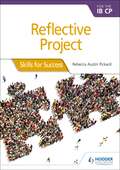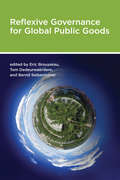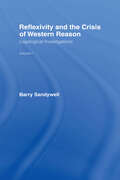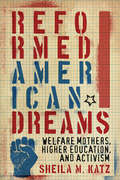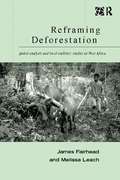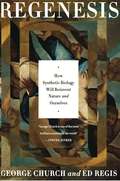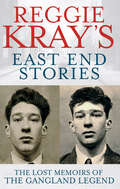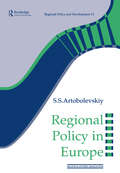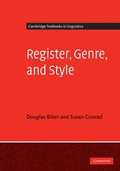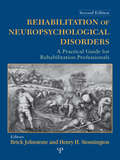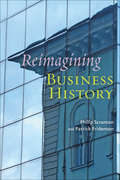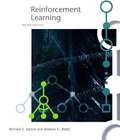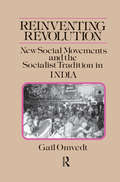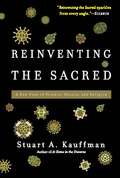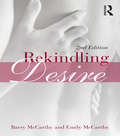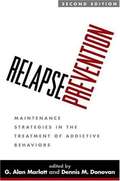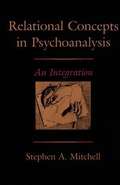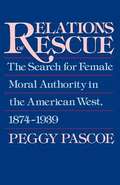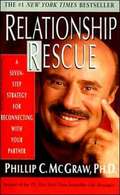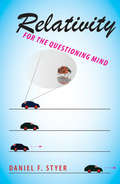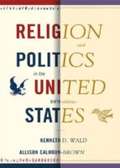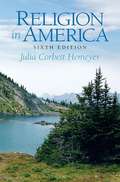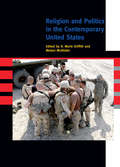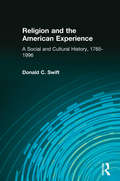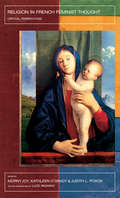- Table View
- List View
Reflective Project for the IB CP: Skills for Success
by Rebecca Austin PickardSupport students through their Reflective Project with this practical companion, fullof advice and guidance that will help develop strong thinking, research and communication skills- Build confidence through expert guidance that focuses on a range of skills:developing a clear ethical issue, developing a research question, thinking critically,referencing and citing sources clearly and reviewing the final project.- Navigate the lB requirements with clear, concise explanations, including advice onassessment objectives and academic honesty.- Develop fully rounded and responsible learning with explicit reference to the ISlearner profile.- Support visual learners with an infographic at the start of each chapter laying out thekey points that will be addressed.- Provide guidance on the importance of reflection with tips on managing theResearcher's reflective space (RRS) and completing the Reflections on planning andprogress form (RPPF).
Reflexive Governance for Global Public Goods (Politics, Science, and the Environment)
by Eric Brousseau Tom Dedeurwaerdere Bernd SiebenhünerGovernance challenges and solutions for the provision of global public goods in such areas as the environment, food security, and development.Global public goods (GPGs)—the economic term for a broad range of goods and services that benefit everyone, including stable climate, public health, and economic security—pose notable governance challenges. At the national level, public goods are often provided by government, but at the global level there is no established state-like entity to take charge of their provision. The complex nature of many GPGs poses additional problems of coordination, knowledge generation and the formation of citizen preferences. This book considers traditional public economy theory of public goods provision as oversimplified, because it is state centered and fiscally focused. It develops a multidisciplinary look at the challenges of understanding and designing appropriate governance regimes for different types of goods in such areas as the environment, food security, and development assistance.The chapter authors, all leading scholars in the field, explore the misalignment between existing GPG policies and actors' incentives and understandings. They analyze the complex impact of incentives, the involvement of stakeholders in collective decision making, and the specific coordination needed for the generation of knowledge. The book shows that governance of GPGs must be democratic, reflexive—emphasizing collective learning processes—and knowledge based in order to be effective.
Reflexivity And The Crisis of Western Reason: Logological Investigations: Volume One
by Barry SandywellThis ground breaking work explores the genealogical analysis of the discourses of reflection. Barry Sandywell traces the differences between the traditional discourses of reflection and the experiences of reflexivity in everyday, social and philosophical thought. Brilliantly organised and abounding with astonishing insights, Reflexivity and the Crisis of Western Reason offers a fundamental challenge to our normal ways of viewing social thought.
Reformed American Dreams: Welfare Mothers, Higher Education, and Activism
by Sheila M. KatzReformed American Dreams explores the experiences of low-income single mothers who pursued higher education while on welfare after the 1996 welfare reforms. This research occurred in an area where grassroots activism by and for mothers on welfare in higher education was directly able to affect the implementation of public policy. Half of the participants in Sheila M. Katz’s research were activists with the grassroots welfare rights organization, LIFETIME, trying to change welfare policy and to advocate for better access to higher education. Reformed American Dreams takes up their struggle to raise families, attend school, and become student activists, all while trying to escape poverty. Katz highlights mothers’ experiences as they pursued higher education on welfare and became grassroots activists during the Great Recession.
Reframing Deforestation: Global Analyses and Local Realities: Studies in West Africa
by James Fairhead Melissa LeachThis study reviews how West African deforestation is represented and the evidence which informs deforestation orthodoxy. On a country by country basis (covering Sierra Leone, Liberia, Cote D'Ivoire, Ghana, Togo and Benin), and using historical and social anthropological evidence the authors evaluate this orthodox critically. Reframing Deforestation suggests that the scale of deforestation wrought by West African farmers during the twentieth century has been vastly exaggerated. The authors argue that global analyses have unfairly stigmatised West Africa and obscured its more sustainable, even landscape-enriching practices. Stessing that dominant policy approaches in forestry and conservation require major rethinking worldwide, Reframing Deforestation illustrates that more realistic assessments of forest cover change, and more respectful attention to local knowledge and practices, are necessary bases for effective and appropriate environmental policies.
Regenesis
by George Church Ed RegisEveryone has heard of genetic engineering: we eat engineered foods, we take drugs made in engineered bacteria and yeast, and someday soon may drive our cars on fuel produced by engineered microorganisms. "Regenesis" is the story of where these technologies came from, and where theyOCOre going, told by the man leading the revolution: Harvard genetics professor George Church. While traditional genetic engineering introduces changes to an organism a few genes at a time, genomic engineering introduces changes on a wholesale basis, allowing for unprecedented feats of synthetic biological engineering. (The technique, called MAGE, was invented by the author. ) In "Regenesis," Church argues for the great potential of this technology, not only to make existing organisms more useful, but for inventing wholly new speciesOCobacterial, animal, and human. It promises to be a strange future, with biohackers building organisms in their garages, companies manufacturing toolkits of DNA parts for creating living machines, and much else. Researchers have already managed to get microbes to produce jet fuel, gasoline, and electricity. And even vaccines, drugs, and industrial chemicals (OC green chemistryOCO). They can reprogram bacteria to metabolize greenhouse gases and convert them into harmless, even beneficial substances. Still, incredible as they might seem, these exploits are minor advances compared to the catalog of wonders that full-blown genomic engineering will make possible, from resurrecting woolly mammoths and other extinct organisms to creating mirror life forms immune to disease. The rise of synthetic biology marks a fundamental transformation in the relationship between biology and nature. When humans can control the genetic makeup of organisms to the extent foreseen by synthetic biologists, nature will no longer be the exclusive arbiter of life, death, and evolution. "Regenesis" reveals what this not so far off future will look like.
Reggie Kray's East End Stories: The lost memoirs of the gangland legend
by Reggie Kray Peter GerrardThe name Reggie Kray remains synonymous with London's East End to this day, and yet although much is known about Reg and his brother Ronnie's life of crime in the '50s and '60s, to date precious little has been revealed about their formative years. Reggie wrote his EAST END STORIES in the early 1990s, but they haven't seen the light of day until now. In the book, he recalls the close-knit East End community in which he and his brother grew up, the characters in his family and neighbourhood, and of course, the many villains he worked with. Filled with anecdotes about the area's most outlandish personalities and notorious criminals, and offering a fascinating journey around the Krays' 'manor' including their favourite haunts and business enterprises, the book paints a vivid portrait of a London that has long since disappeared.
Regional Policy in Europe (Regions and Cities #Vol. 11)
by S.S ArtobolevskiyBased on the author's extensive research in the field, this book analyzes regional policy for the whole of Europe. Comparing East and West, it offers a new model of regional policy and gives an overview of the direction that it may take in Europe as a whole. Topics covered include: the evaluation of regional policy; its main aims; its "infrastructure" in Western Europe; its form in Eastern Europe; and the development of regional policy from 1917 to the 1990s. The book is intended for professionals and academics working in the areas of regional studies, economics and policy studies.
Register, Genre, and Style
by Douglas Biber Susan ConradThis book describes the most important kinds of texts in English and introduces the methodological techniques used to analyse them. Three analytical approaches are introduced and compared, describing a wide range of texts from the perspectives of register, genre and style. The primary focus of the book is on the analysis of registers. Part 1 introduces an analytical framework for studying registers, genre conventions, and styles. Part 2 provides detailed descriptions of particular text varieties in English, including spoken interpersonal varieties (conversation, university office hours, service encounters), written varieties (newspapers, academic prose, fiction), and emerging electronic varieties (e-mail, internet forums, text messages). Finally, Part 3 introduces advanced analytical approaches using corpora, and discusses theoretical concerns, such as the place of register studies in linguistics, and practical applications of register analysis. Each chapter ends with three types of activities: reflection and review activities, analysis activities, and larger project ideas.
Rehabilitation of Neuropsychological Disorders: A Practical Guide for Rehabilitation Professionals
by Brick Johnstone Henry H. StonningtonMany contemporary neuropsychology texts focus on neuropathology, the description of specific tests, and the differential diagnosis of central nervous system disorders. However, increasingly sophisticated neuroradiological techniques, managed care factors, and the growth of rehabilitation necessitates that rehabilitation professionals provide more functionally (versus diagnostically) useful evaluations to improve the neuropsychological functioning and community integration of persons with brain injuries or diseases. This book aims to fill this gap and to provide an overview of standard neuropsychological treatment strategies for specific cognitive impairments that are identified on testing. The new edition enhances this goal with three chapters outlining important recommendations, services, and issues for rehabilitation professionals. Written by a team of experienced scientists and professionals, the volume provides a universal taxonomy of neuropsychological abilities (emphasizing relatively simple terms), with a list of basic rehabilitation strategies to improve impairments identified in general cognitive domains. Specific chapters are included on the neuropsychological remediation of memory, attention, language, visual-spatial skills, and executive function impairments. Each chapter proposes a taxonomy of relatively unitary cognitive constructs (e.g., divided attention, sustained attention, focused attention), lists tests which may be used to assess each cognitive construct, and provides specific rehabilitation strategies to improve or accommodate the identified neuropsychological impairments. The final chapters cover basic resources and issues of which the rehabilitation professional needs to be aware (vocational rehabilitation, disability determination, and guardianship issues). This new edition provides a wealth of useful information for family members, rehabilitation professionals, and others who work with persons with brain injury in improving the community functioning for those with brain dysfunction. An accompanying website facilitates access to the resources and strategies from the book, allowing the practitioner to cut and paste these recommendations into their clinical reports.
Reimagining Business History
by Philip Scranton Patrick FridensonA vigorous call for rethinking the field of business history.Business history needs a shake-up, Philip Scranton and Patrick Fridenson argue, as many businesses go global and cultural contexts become critical. Reimagining Business History prods practitioners to take new approaches to entrepreneurial intentions, company scale, corporate strategies, local infrastructure, employee well-being, use of resources, and long-term environmental consequences.During the past half century, the history of American business became an unusually active and rewarding field of scholarship, partly because of the primacy of postwar American capital, at home and abroad, and the rise of a consumer culture but also because of the theoretical originality of Alfred D. Chandler. In a field long given over to banal company histories and biographies of tycoons, Chandler took the subject seriously enough to ask about the large patterns and causes of corporate success. Chandler and his students found the richest material for theorizing about the course of business history in large companies and their institutional structures and cultures. Meantime, Scranton and others found smaller firms, those specializing in batch work as opposed to mass-produced goods, far closer to the norm and more telling.Scranton and Fridenson believe that the time has come for a sweeping rethinking of the field, its materials, and the kinds of questions its practitioners should be asking. How can this field develop in an age of global markets, growing information technology, and diminishing resources? A transnational collaboration between two senior scholars, Reimagining Business History offers direction in forty-four short, pithy essays.
Reinforcement Learning: An Introduction
by Richard S. Sutton Andrew G. BartoReinforcement learning, one of the most active research areas in artificial intelligence, is a computational approach to learning whereby an agent tries to maximize the total amount of reward it receives when interacting with a complex, uncertain environment. In Reinforcement Learning, Richard Sutton and Andrew Barto provide a clear and simple account of the key ideas and algorithms of reinforcement learning. Their discussion ranges from the history of the field's intellectual foundations to the most recent developments and applications. The only necessary mathematical background is familiarity with elementary concepts of probability. The book is divided into three parts. Part I defines the reinforcement learning problem in terms of Markov decision processes. Part II provides basic solution methods: dynamic programming, Monte Carlo methods, and temporal-difference learning. Part III presents a unified view of the solution methods and incorporates artificial neural networks, eligibility traces, and planning; the two final chapters present case studies and consider the future of reinforcement learning.
Reinventing Revolution: New Social Movements and the Socialist Tradition in India (Socialism And Social Movements Ser.)
by Gail OmvedtThis study describes and analyses the new social movements that have arisen in India over the past two decades, in particular the anti-caste movement (of both the untouchables and the lower-middle castes), the women's liberation movement, the farmers' movement (centred on struggles arising out of their integration into a state-controlled capitalist market), and the environmental movements (opposition to destructive development, including resistance to big dam projects and the search for alternatives). Rooted in participant observation, it focuses on the ideologies and self-understanding of the movements themselves. The central themes of this book are the origin of movements in the socio-economic contradictions of post-independence India; their effect on political developments, in particular the disintegration of Congress hegemony; their relation to "traditional Marxist" theory and Communist practice; and their groping toward a synthesis of theory and practice that constitutes a new social vision distinct from traditional Marxism.
Reinventing the Sacred: A New View of Science, Reason, and Religion
by Stuart A. KauffmanConsider the complexity of a living cell after 3. 8 billion years of evolution. Is it more awesome to suppose that a transcendent God fashioned the cell at a stroke, or to realize that it evolved with no Almighty Hand, but arose on its own in the changing biosphere? In this bold and fresh look at science and religion, complexity theorist Stuart Kauffman argues that the qualities of divinity that we revere--creativity, meaning, purposeful action--are properties of the universe that can be investigated methodically. He offers stunning evidence for this idea in an abundance of fields, from cell biology to the philosophy of mind, and uses it to find common ground between belief systems often at odds with one another. A daring and ambitious argument for a new understanding of natural divinity, Reinventing the Sacred challenges readers both scientifically and philosophically.
Rekindling Desire: A Step By Step Program To Help Low-sex And No-sex Marriages
by Barry McCarthy Emily McCarthyFor over a decade Rekindling Desire has helped to restore and restructure sexuality in thousands of lives. This expanded edition continues the exploration of inhibited sexual desire and no-sex relationships by the author, who brings decades of knowledge and the expertise that comes from having treated almost 3,000 couples for sexual problems. Contained within are suggested strategies and exercises that help develop communication and sexual skills, as well as interesting case studies that open the doors to couples’ sexual frustrations. The shame, embarrassment, and hesitancy that individuals feel with themselves, and the resentment and blame they can feel towards their sexual partners, are explored and put into context. Whether you are married, cohabitating, or dating, or if you are 25, 45, or 75, reading this book will help renew your sexual desire and put you on the path towards healthy, pleasure-oriented sexuality.
Relapse Prevention: Maintenance Strategies in the Treatment of Addictive Behaviors (Second Edition)
by G. Alan Marlatt Dennis M. DonovanGrounded in research and illustrated with clinical vignettes, these papers demonstrate various ways to help people maintain abstinence or harm reduction treatment goals and to handle setbacks. They review such therapeutic techniques as cognitive restructuring, imagery, relapse rehearsal, and mindfulness meditation. This second edition features new coverage of stimulants, opiates, cannabis, "club drugs," gambling, and sexually risky behaviors. A new chapters addresses ethnocultural issues in relapse prevention. Annotation ©2005 Book News, Inc., Portland, OR (booknews.com)
Relational Concepts in Psychoanalysis: An Integration
by Stephen A. MitchellIn this book the author applies the relational perspective to several areas of clinical concern, including sexuality, childhood development, narcissism, and theories of change and healing.
Relations of Rescue
by Peggy PascoeIn this study of late nineteenth-century moral reform, Peggy Pascoe examines four specific cases--a home for Chinese prostitutes in San Francisco, California; a home for polygamous Mormon women in Salt Lake City, Utah; a home for unmarried mothers in Denver, Colorado; and a program for American Indians on the Omaha Reservation in Nebraska--to tell the story of the women who established missionary rescue homes for women in the American West. Focusing on two sets of relationships--those between women reformers and their male opponents, and those between women reformers and the various groups of women they sought to shelter--Pascoe traces the gender relations that framed the reformers' search for female moral authority, analyzes the interaction between women reformers and the women who entered the rescue homes, and raises provocative questions about historians' understanding of the dynamics of social feminism, social control, and intercultural relations.
Relationship Rescue: A Seven-Step Strategy for Reconnecting with Your Partner
by Phillip C. McgrawAs a follow-up to his bestselling book Life Strategies, Oprah acolyte Phillip C. McGraw, Ph.D., moves from aiding the aimless individual to coaching the disconnected couple. McGraw has distilled his more than two decades of counseling experience into a seven-step strategy he calls "Relationship Rescue.""I'm prepared to kick a hole in the wall of the pain-ridden, unhappy maze you've gotten yourself into, and provide you clear access to action-oriented answers and instructions on what you must do to have what you want," says Dr. Phil. His aim is to expose and eliminate the saboteurs that cause senseless damage to already-fragile marriages, and, like an emotional root canal, to replace them with values he says provide positive results. If you follow Dr. Phil's strategy, he will lead you on a precise journey to uncover your heart and then share it with your partner as part of taking the "risk of intimacy."Dr. Phil leads you to "reconnect with your core" in the first five steps of his seven-step strategy. By no means a quick fix, there are in-depth and rigorous questionnaires, surveys, tests, and profiles that require a "brutally candid" mindset, with such fill-in-the-blanks as "List five things that today would make you fall out of love with your partner." With this internal work accomplished, you'll then move on to reconnecting with your partner during a two-week, half-hour-a-day short course. As a "dyad," you and your loved one take turns giving monologues on topics such as "The most positive thing I took away from my mother and father's relationship was..."Once the "reconnection" has been established, Dr. Phil says the work shifts to a management role, as relationships are always a work in progress. Dr. Phil humorously refers to his own marriage throughout the book, sharing his mishaps and victories in learning to accept and enjoy what he sees as fundamental but complementary differences between men and women. --John Youngs
Relativity for the Questioning Mind
by Daniel F. StyerTo those of us who are not mathematicians or physicists, Einstein’s theory of relativity often seems incomprehensible, exotic, and of little real-world use. None of this is true. Daniel F. Styer’s introduction to the topic not only shows us why these beliefs are mistaken but also shines a bright light on the subject so that any curious-minded person with an understanding of algebra and geometry can both grasp and apply the theory.Styer starts off slowly and proceeds carefully, explaining the concepts undergirding relativity in language comprehensible to nonscientists yet precise and accurate enough to satisfy the most demanding professional. He demonstrates how the theory applies to various real-life situations with easy equations and simple, clear diagrams. Styer's classroom-tested method of conveying the core ideas of relativity—the relationship among and between time, space, and motion and the behavior of light—encourages questions and shows the way to finding the answers. Each of the book’s four parts builds on the sections that come before, leading the reader by turn through an overview of foundational ideas such as frames of reference, revelatory examples of time dilation and its attendant principles, an example-based exploration of relativity, and explanations of how and why gravity and spacetime are linked. By demonstrating relativity with practical applications, Styer teaches us to truly understand and appreciate its importance, beauty, and usefulness.Featuring worked and end-of-chapter problems and illustrated, nontechnical explanations of core concepts, while dotted throughout with questions and answers, puzzles, and paradoxes, Relativity for the Questioning Mind is an enjoyable-to-read, complete, concise introduction to one of the most important scientific theories yet discovered. The appendixes provide helpful hints, basic answers to the sample problems, and materials to stimulate further exploration.
Religion And Politics In The United States (6th Edition)
by Kenneth D. Wald Allison Calhoun-BrownReligion and Politics in the United States, Sixth Edition, offers a comprehensive account of the role of religious ideas, institutions and communities in American life. This book examines the ways religion can both compel and constrain involvement in politics and policy. What facilitates political participation? What impedes it? What are the limits of religious mobilization and involvement? Are there benefits? Are there dangers? Religion and Politics in the United States addresses these questions by exploring how religion has influenced the structure of American government and law as well as how religious perspectives inform contemporary political issues including topics such as equal rights for women and gays. The book also explores the ways that religion has affected the orientation of partisan politics in the United States. Through a detailed review of the political attitudes and behaviors of major religious and minority faith traditions, the book establishes that religion continues to be a major part of the American cultural and political milieu while explaining that it must interact with many other factors to impact political outcomes in the United States. The sixth edition reviews the role of religion in the 2008 election and includes coverage of how religion informs the civil rights struggles of women and gay Americans.
Religion In America (Sixth Edition)
by Julia Corbett HemeyerReligion in America gives students and teachers a comprehensive yet concise introduction to the changing religious landscape of the United States. Extensively revised and updated, the Sixth Edition continues to engage students in reflection about religious diversity. The author presents the study of religion within the context of the humanities as a tool for developing understanding and appreciation of communities of faith other than ones own, and for understanding the dynamics at work in religion in the United States today.
Religion and Politics in the Contemporary United States (A Special Issue of<I> American Quarterly</I> <I> </I>)
by R. Marie Griffith, Melani McAlisterThis collection of essays from a special issue of American Quarterly explores the complex and sometimes contradictory ways that religion matters in contemporary public life.Religion and Politics in the Contemporary United States offers a groundbreaking, cross-disciplinary conversation between scholars in American studies and religious studies. The contributors explore numerous modes through which religious faith has mobilized political action. They utilize a variety of definitions of politics, ranging from lobbying by religious leaders to the political impact of popular culture. Their work includes the political activities of a very diverse group of religious believers: Christians, Jews, Muslims, Hindus, Buddhists, and others. In addition, the book explores the meanings of religion for people who might contest the term—those who are spiritual but not religious, for example, as well as activists who engage symbols of faith and community but who may not necessarily consider themselves members of a specific religion. Several essays also examine the meanings of secular identity, humanist politics, and the complex evocations of civil religion in American life.No other book on religion and politics includes anything like the diversity of religions, ethnicities, and topics that this one does—from Mormon political mobilization to attempts at Americanizing Muslims in the post-9/11 United States, from César Chávez to James Dobson, from interreligious cooperation and conflict over Darfur to the global politics surrounding the category of Hindus and South Asians in the United States.
Religion and the American Experience: A Social and Cultural History, 1765-1996
by Donald C. SwiftReligion in the USA manifests itself in many forms and this book examines them, from religion in the early republic, to early African American religion, reform, nativism movements, and fundamentalism, up to the contemporary culture wars, in a study that spans almost 250 years.
Religion in French Feminist Thought: Critical Perspectives
by Morny Joy Kathleen O’Grady Judith L. PoxonReligion in French Feminist Thought: Critical Perspectives brings together some of the leading modern religious responses to major French feminist writings on religion. It considers central figures such as Hélène Cixous, Julia Kristeva, Luce Irigaray and Catherine Clément, and its focus on questions of divinity, subjectivity, and ethics provides an accessible introduction to an area of growing philosophical interest.Illustrating the ways in which French feminism has become a valuable tool in feminist efforts to rethink religion, and responding to its promise as an intellectual resource for religious philosophy in the future, Religion in French Feminist Thought is ideal both for independent use and as a companion book to French Feminists on Religion (Routledge, 2001).
